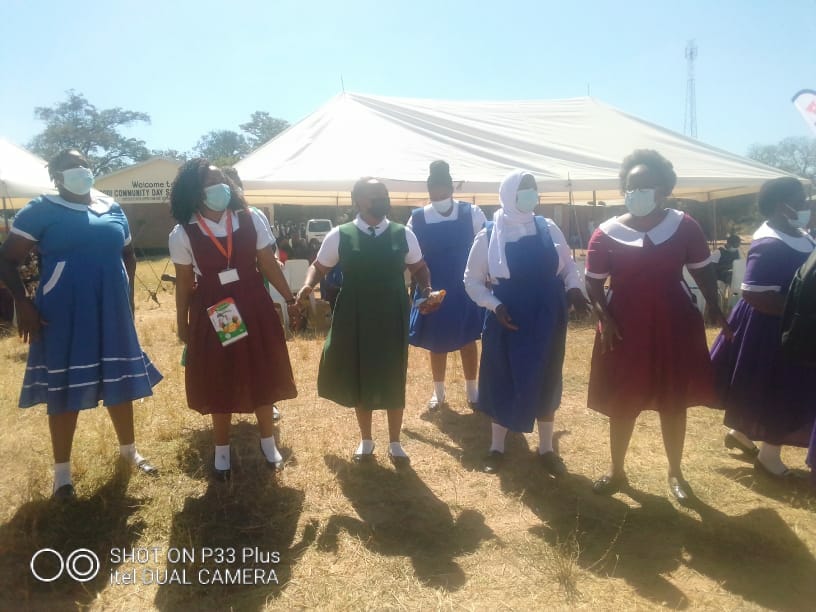
Africa-Press – Malawi. World Vision Malawi’s End Child Marriage’ campaign in an effort to reduce child marriages by 20% in the country has prompted female lawmaker to have motivation talks to various primary and secondary schools.
On Wednesday, the female legislators led by Malawi Speaker Gotani Hara were at Chigodi Community Day Secondary School, Lilongwe rural.
Clad in various coloured school uniforms, the 28 female MPs thronged Nkhoma Zone, under Central West Education Division, where they carried career guidance and motivational talks to some schools.
Female Members of Parliament (MPs) had one voice pleading with girls to remain firm on education and disregard cultural practices that encourage early marriage.
Hara, and deputy speaker Aisha Adams and female lawmakers said they valued role modelling to the girls in order to encourage them further their education despite challenges being encountered daily.
“Lack of parents, born from poverty stricken families, lack of school fees, should not be part of an excuse to fail education.
“I want to encourage the teachers to be dedicated by taking your service serious and improve on quality of education despite the hard conditions you are subjected to,” said Speaker Hara.
She then appealed to parents to work collaboratively with teachers so that children grow up responsibly, criticising parents who hate teachers for disciplining their children.
The Speaker took advantage of the event reproaching some women who sexually abuse young boys quoting an incident in Chinsapo Township in Lilongwe where a woman sexually abused toddlers.
MPs for Mulanje North Lyana Tambala and Fyness Magonjwa for Machinga South East, said girls should use the free primary education to excel in school.
Naomi Chimkoka, 21, a Form three student at Chigodi Community Day Secondary School citing her poem titled ‘I have discovered’ observed that girls are forced into marriages with sugar daddies to end poverty, but instead poverty worsens.
“I have discovered that girls fail to say no, when sugar daddies give them money, girls have weak thinking and easily give up easily, when something hard blocks their way. I have discovered that education is key,” reads part of the poem.
World Vision’s Advocacy Child Protection manager Director, Lizzie Lombe, hailed the female MPs for the career guidance and motivation talks, which he said has changed a lot of minds.
“To achieve our goals in education, let’s leave aside smoking, drug abuse and indulging in sexual relationships, before your future is doomed,” said Lombe.
During the event, the parliamentarians donated 1, 200 notebooks, 860 lead pencils and 300 ball point pens at Chigodi CDSS and Primary schools.
The event was part African girl child commemoration.
Many children, especially girls, are suffering from child marriage, sexual harassment, abuse, and other harmful practices.
Worse still, covid-19 now threatens the future of the Malawian child. If the statistics are anything to go by, then our hearts must be broken.
About 13 000 cases of child marriages and over 40 000 cases of teen pregnancies across Malawi have been recorded since Covid-19 hit the country.
Currently, World Vision Malawi is running the “It Takes Malawi to End Child Marriage” campaign in an effort to reduce child marriages by 20%.
Therefore, the coming in of MPs seeks to highlight the importance of education for children, especially girls in rural places of the country.
According to World Vision Malawi statistics about 42% girls get married before age 18 that 29% of girls get teen pregnancies and 20% of girls are sexually violated before they get to age 18.
World Vision Malawi is also implementing relief and development interventions in all 28 districts of the country, impacting a total of 5 million children through education, food security, health and nutrition and water and sanitation interventions.





